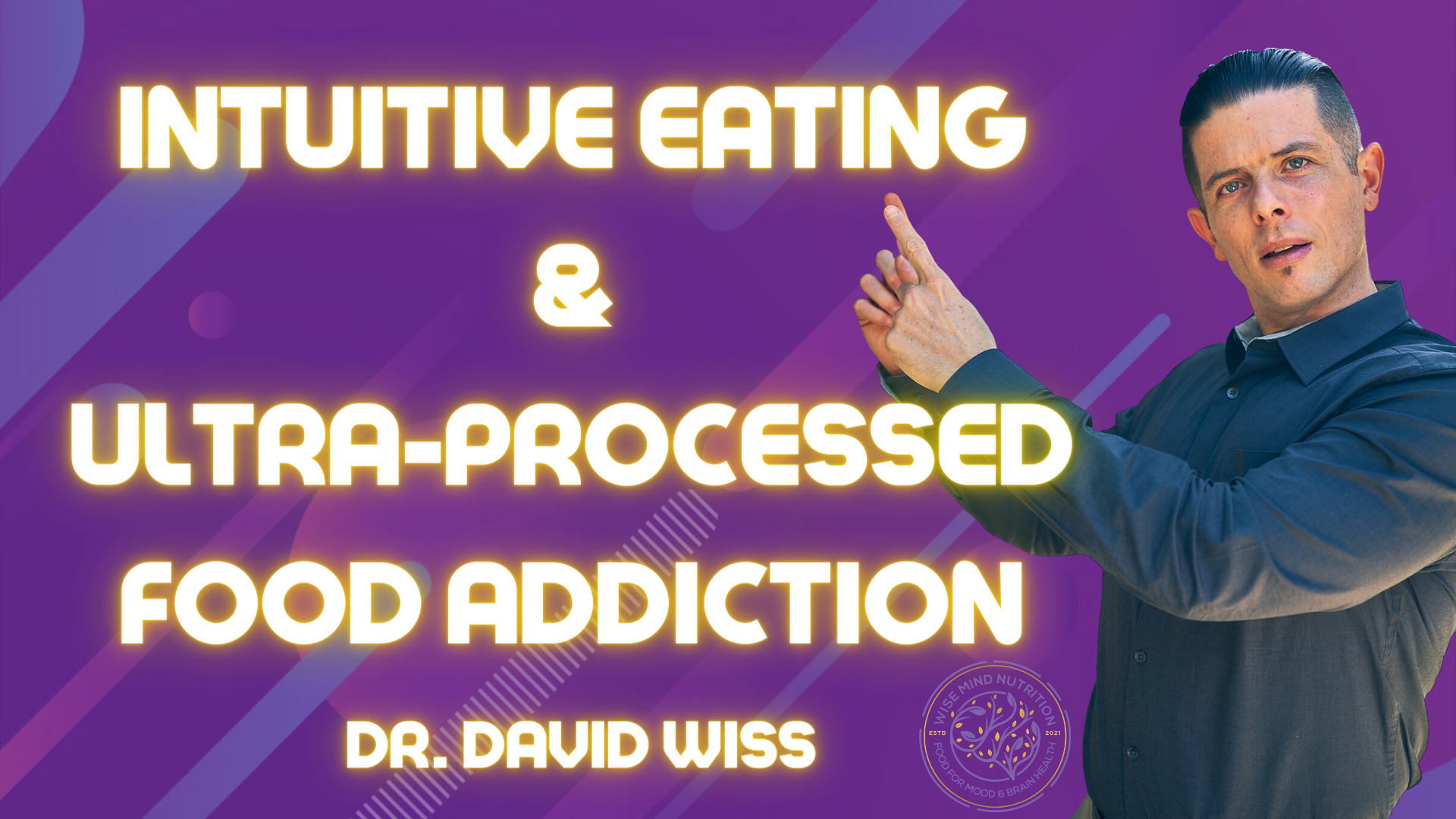Intuitive Eating and Ultra-Processed Food Addiction
1:25:56

Intuitive Eating and Ultra-Processed Food Addiction
Subscribe for weekly insights and research exploring the link between nutrition & mental health.
The intuitive eating community insists that food addiction does not exist. But evidence suggests otherwise. There is a timely need to discuss convergence and divergence between differing schools of thought.
In this presentation, Dr. David Wiss uses storytelling to share his journey as a dietitian in mental and behavioral health settings. This presentation discusses the shortcomings of the food addiction construct and the shortcomings of the intuitive eating construct. Three clinical vignettes will be presented.
At the end of the presentation, attendees will be able to:
1) Describe the current controversies surrounding the food addiction construct.
2) Describe potential reasons for higher self-reported food addiction rates among those with eating disorders.
3) Describe the potential connections between food addiction and dietary restraint.
4) Describe how food addiction and principles of intuitive eating converge and diverge.
5) Conceptualize potential treatment strategies for food addiction based on the presence of other psychiatric diagnoses such as eating disorders, substance use disorders, PTSD, and depressive symptoms.
6) Discuss three clinical vignettes with attendees and explore different treatment strategies.
Key Points:
- Dr. Wiss explores the controversial intersection of food addiction research and eating disorder treatment.
- He discusses the concept of “ultra-processed food addiction” and its potential impact on public health.
- The presentation challenges the food industry’s influence on nutrition science and policy.
- Dr. Wiss examines the role of early life adversity and stress in developing problematic eating behaviors.
- He presents research on the biological embedding of food-related experiences and their generational impacts.
- The talk addresses the limitations of current eating disorder treatment models in addressing addiction-like eating.
- Dr. Wiss proposes a more nuanced approach to understanding dietary restraint and its relationship to food addiction.
- He explores the concept of “discipline bias” in nutrition research and how it affects treatment approaches.
- The presentation critiques the potential shortcomings of intuitive eating for individuals with addiction-like eating patterns.
- Dr. Wiss calls for a paradigm shift in nutrition science that incorporates multiple models and perspectives.